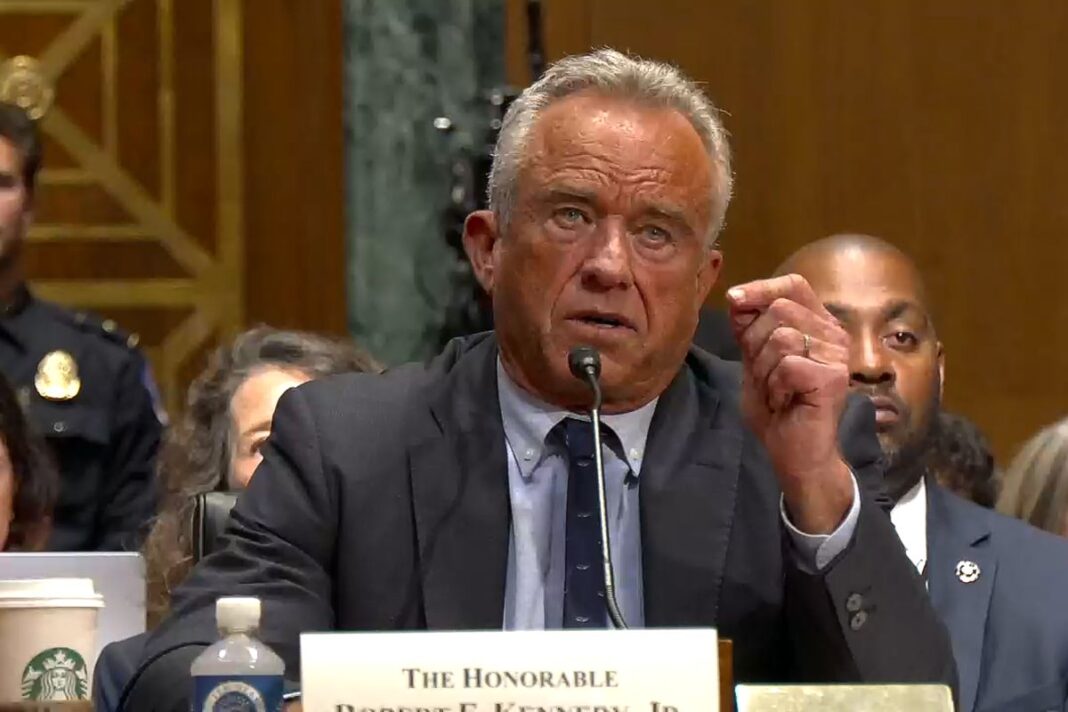The health secretary said he never told Susan Monarez to preapprove recommendations from the CDC’s vaccine advisory panel.
Health Secretary Robert F. Kennedy Jr. on Sept. 4 defended the shakeup at the Centers for Disease Control and Prevention, including the recent termination of its director.
“These changes were absolutely necessary adjustments to restore the agency to its role as the world’s gold standard public health agency, with the central mission of protecting Americans from infectious disease,” Kennedy said during an appearance before the Senate Finance Committee in Washington.
“CDC failed that responsibility miserably during COVID,” he said, pointing to how CDC guidance led to the closures of schools and businesses, as well as masking children as young as 2, while the United States recorded more than 1 million deaths due to COVID-19, according to death certificates.
“That’s why we need bold, competent, new leadership at CDC,” Kennedy said.
The Trump administration in August ousted Susan Monarez as director of the agency because, according to a White House spokesman, she was not “aligned with the President’s agenda of Making America Healthy Again.”
The termination was quickly followed by the resignations of several top CDC officials, who cited the move as one of the reasons they were leaving.
Lawyers said Monarez was fired because she declined to “rubber-stamp unscientific, reckless directives and fire dedicated health experts.”
Monarez wrote in an op-ed published Thursday that she was told to preapprove recommendations from the CDC’s vaccine advisory panel.
“It is imperative that the panel’s recommendations aren’t rubber-stamped but instead are rigorously and scientifically reviewed before being accepted or rejected,” she wrote.
When senators asked about the claim, Kennedy denied it. He said that he never met one-on-one with Monarez and that others at their meetings would back him up, including new CDC acting Director Jim O’Neill.
Kennedy also said that Monarez had made a statement that she would not approve recommendations from the panel.
“I told her I didn’t want her to have a rule [that] she wouldn’t sign onto it,” he said.
“I told her that she had to resign because I asked her, ‘Are you a trustworthy person?’ and she said ‘No,’” Kennedy told Sen. Elizabeth Warren (D-Mass.). “If you had an employee that told you they weren’t trustworthy, would you ask them to resign, senator?”








